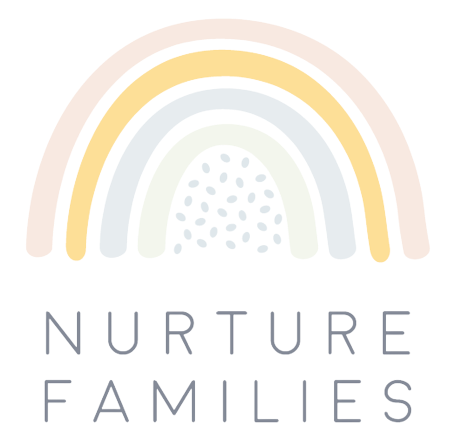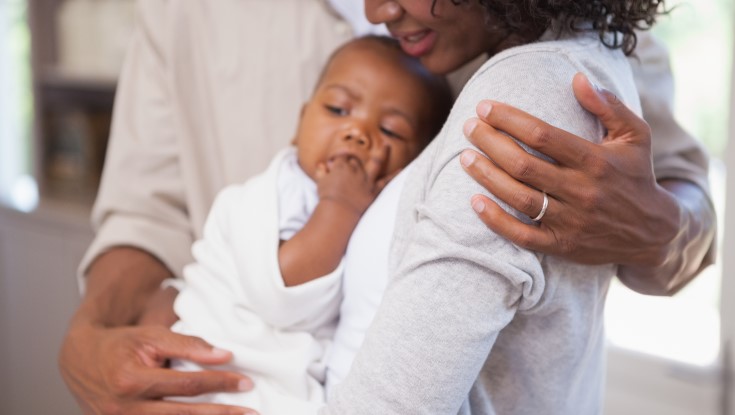Understanding Your Baby: Supporting Parent Infant Relationships
By understanding more about our babies, we are offering them a solid foundation for their future development. In my work as a parent-infant therapist, I’ve seen the impact of nurturing and supportive relationships between parents and their infants. It is a formative time, when for many of us there are outside difficulties and stressors on the parent infant relationship.
The parent-infant relationship is essential in shaping a child's brain development and future emotional health
As parents, we know that our infants need more than just the basics of feeding, changing, and warmth. Infants need a caregiver to share in their moment-to-moment experiences, someone to communicate with and make meaning with.
Often, we don’t realise that our babies are born ready to relate, and that we can help them develop healthy and secure relationships with us.
Understanding Your Baby’s Cues
When a baby cries, they are communicating their needs, whether it is hunger, discomfort, or a need for closeness. When they are very young we are learning to read their cues, to tune into what they need in that moment.
Take time to watch your baby and look at what she does. You will soon learn what she likes, wants and needs, though this can take longer with some babies than with others.
When your baby wants your attention and when she needs a rest:
Your baby wants to interact with you when she:
- Looks at you
- Reaches towards you
- Smiles at you
- Babbles and talks to you
- Has wide and bright eyes
Your baby is likely to need a change from what is happening if she:
- Looks away
- Turns her head away
- Yawns
- Puts her hands up to his face
- Has a blank looking face or eyes
She may need a change of pace if she becomes more active and restless.
When we respond to our baby's cries, we are not only meeting their physical needs but also helping them to feel secure and loved.
When we hold them, listen to them, talk to them, and offer them comfort, we are communicating love, safety and containment.
Crying Babies – My Baby Won’t Stop Crying!
In time you will get to know your baby’s cries and will know which cry is for hunger, tiredness and so on.
Some babies cry more than others and we are not sure why this is. Crying can be very hard for parents especially when it happens a lot.
Soothing a tired and fussy baby isn’t easy but there are things you can do to help. Doing one thing over and over is best for soothing rather than doing a lot of different things.
If what you are doing isn’t working after a while try something else but give that a while before you change again.
It is important to remember that long periods of crying may mean your baby
is sick or in pain. If this happens call your doctor to make sure nothing serious is wrong. If you feel you really can’t cope with your baby’s crying try one of the following:
- Take some ‘time out’. Put her in her cot and walk away.
- Check her after 10 minutes at the most.
- Talk to someone you trust about how you are feeling. Nurture Families has a contact form that will put you in touch with a parent-infant therapist.
- Try and give yourself a break. Ask trusted family, friends or neighbours to take your baby for a while.
- Not sure what to do? Contact Nurture Families parent-infant therapists here.
With very young babies it is best to avoid leaving them to cry for long periods in their cot or pram. Be aware of your own emotional state, and ask for help when you need it. Our parent-infant therapists and doulas are on hand to help.
Even before birth, babies can hear and recognise their mother's voice. When they are born, babies can recognise their mother's smell, face, and voice, and they begin to "talk" to us using their body language and cues. By responding to our baby's cues, we can help our babies brain development and build a strong bond with them.
Your Baby’s States
As parents, we can help our babies feel secure by being present and responsive to their needs. It is also important to understand that babies do not have self-control, and they cannot stop themselves from doing things. Instead of punishing or scolding our babies, we can watch and listen before we help them to change their state.
For example, babies feed better when they are fully awake. You can help your baby to wake up properly by speaking to her and making eye contact.
Perhaps your baby is fretful or unsettled. How can you help her? Some babies calm themselves down without help from anyone. If your baby is fretful or unsettled try to let her have time to calm and settle herself before you do anything.
If she can’t manage by herself there are things you can do to help. Just remember - doing one thing over and over is best for soothing rather than doing a lot of different things.
From birth babies try to soothe and comfort themselves. You may see your baby suck their fingers, thumbs or hands. Try to make sure that your baby can get her hands to her mouth whenever she is tired or fretful. If baby’s nails are kept short she won’t need scratch mitts on her hands when she is
indoors.
Talking to your baby and/or patting or stroking her may help her to settle, especially if she has just woken from a period of light sleep and needs to go back to a deeper sleep. See our article about sleeping babies for more information.
It is not uncommon for new parents to feel overwhelmed and stressed, and it may take time to develop a deep emotional connection with your baby. It is okay to take things one step at a time and focus on building a relationship with your baby.
Spending quality time with your baby, playing, and engaging can help strengthen your bond and create a secure attachment.
It is clear that the parent-infant relationship is critical in shaping a child's brain development and future emotional well-being. As parents, we can support our baby's development by being present and responsive to their needs, and spending quality time with them. By understanding our babies and nurturing their capabilities, we can help them thrive and have the best foundation for their future development.
Nurture Families pregnancy support services include doulas, home visitors, and parent-infant therapists.
We cover Worcestershire and North Herefordshire currently.
Get in touch today to work one to one with our pregnancy support specialists – doulas, home visitors and parent-infant therapists.




